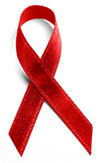NZ should demand US scale back stricter access rules to generic drugs in TPP talks. Despite commitment to end AIDS, the US government is introducing stronger intellectual property rules through trade agreements, like the TPPA currently being negotiated with New Zealand and seven other countries – and bilateral pressure that will undermine the fight against AIDS by devastating the ability of developing countries to access affordable anti-retroviral medicines.
 NZ should demand US scale back stricter access rules to generic drugs in TPP talks
NZ should demand US scale back stricter access rules to generic drugs in TPP talks
International AIDS Conference 2012, Washington D.C.
Despite commitment to end AIDS, the US government is introducing stronger intellectual property rules through trade agreements, like the TPPA currently being negotiated with New Zealand and seven other countries – and bilateral pressure that will undermine the fight against AIDS by devastating the ability of developing countries to access affordable anti-retroviral medicines.
Strict intellectual property rules prevent low-cost generic versions of medicines from entering the market. Generic competition is the only proven mechanism for lowering prices. The US has pushed for stricter intellectual property rules especially via a new trade agreement – the Trans Pacific Partnership – which is currently being negotiated between New Zealand, United States and seven other countries in the Asia-Pacific region and Latin America, with Mexico and Canada projected to join soon.
“Under the influence of the multinational pharmaceutical industry, the US is pushing for enhanced monopoly protection on new medicines, including medicines to treat HIV and AIDS, thus driving up the cost for people living in poverty,” said Dr. Mohga Kamal-Yanni, senior health advisor for Oxfam. “Neither patients nor governments will be able to pay for anti-retroviral medicines urgently needed to address the pandemic.”
The US has also sought to push other countries to implement enhanced monopoly protection via its annual Special 301 Report, which harshly criticises countries that use legal measures under global trade rules to reduce unaffordable medicine prices – a critical pre-requisite to providing treatment.
Without low-cost generics, it would not have been possible to initiate over eight million people on anti-retroviral therapy. Until generics entered the market over a decade ago, anti-retroviral therapy cost $10,000 per patient per year. Thanks to generic competition, the price for first-line medicines in preferred fixed-dose combinations now costs under $80 per patient per year.
Donors, including the United States Government, have relied heavily upon low-cost generic medicines to meet ambitious treatment goals.
“Despite all the successes – including of the US – to address the pandemic, narrow commercial interests are threatening to undo the recent gains,” said Kamal-Yanni. “It is stranger than fiction that the US is pursuing strict IP rules in developing countries such as Vietnam, which is one of 16 countries that receives assistance under the US Global AIDS Program.”
“Vietnam, a developing country where Oxfam works, is one of the seven other countries involved in the TPPA negotiations and New Zealand should also be supporting developing country interests by pushing to have many of the worst elements of the stricter rules scaled back because they would undermine access to affordable medicines”, said Barry Coates, Oxfam New Zealand Executive Director.
The renewed US drive for strict IP rules through trade agreements is coming at an especially inopportune moment. Scientific consensus has pointed to treatment as a great route to prevention of HIV and AIDS. Yet donor financing for HIV and AIDS, in the aftermath of the global financial crisis, is leveling off even as the challenges remain enormous. In particular, the costs of new and more effective treatments for HIV, many of which remain under monopoly patent protection, are as much as 10 or even 50 times the cost of first-line treatments. These high costs not only threaten to undermine the ongoing treatment of over eight million people, some of whom must switch to these new medicines as they develop resistance to first line medicines, but will hinder governments and funding agencies from expanding treatment to millions of others who desperately need it. At a time when more must be done with less, US trade policy threatens to put the drive for universal access into reverse.
“To end AIDS, countries need to scale up access to affordable medicines,” said Kamal-Yanni. “The US must stop demanding new intellectual property rules through trade agreements and direct pressure.”



